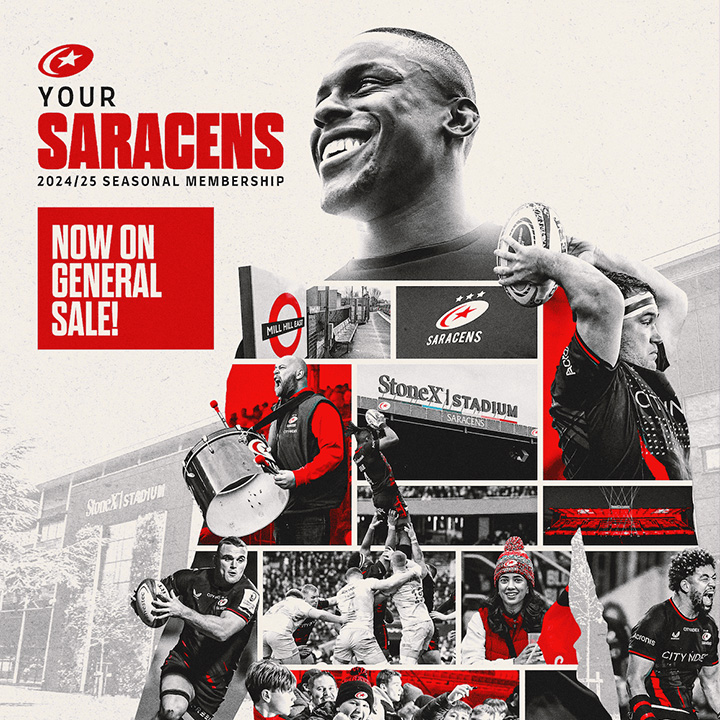#IWD2019: "I’VE LEARNT TO EMBRACE MY STRENGTH AND BE REALLY PROUD OF HOW STRONG I AM"


Saracens Women captain Charlotte ‘Lotte’ Clapp started rugby at the age of 11 at Sir Frederic Osborn School in Welwyn Garden City.
The England international admitted that she had initially been too nervous to play rugby, having spent years watching her older brother play. Once she got started though, there was one thing that really stood out when she was on the pitch.
“I loved I think the idea of the contact side. I always used to get frustrated playing sports like netball and things like that where it had sort of contact in but you couldn’t just make your way through and do what you want to do.
“Whereas rugby you’ve got that freedom, going wherever you want on the pitch, just running where you want to go really.”
However, as with many young women growing up playing the sport, she was faced by the usual stereotypical questions.
“I remember chatting to people saying ‘Oh yeah I play rugby’ and people didn’t have a clue that girls could do that.
“Then they’d go on to ask the questions, ‘Do you play contact as well? Is it the same rules?’ ‘Well yeah, it’s exactly the same’. It was just unknown so it’s really great now that we’ve fought those barriers and it’s now known that women play contact rugby exactly the same as the men’s.”
On top of that, as a young player, she had to work through issues around how she felt she was perceived and how her body looked when she was at secondary school.
“I felt my arms and upper body were huge compared to everyone else. I was always conscious of that stigma of being “butch girl” and boys not liking you or whatever. But actually, I’ve learned to embrace my strength and be really proud of how strong I am.”
While the vast majority of female rugby players in England, and across the globe, are amateur or “professional with a small ‘p’”, there is now another option these days.
The introduction of full-time contracts for England players in both XVs and Sevens has made a career in rugby a viable option for young players starting out in the journey in the sport.
For Clapp, who has balanced the majority of her career to date alongside her studies, the fact that young players can now look at rugby as a career is only a positive.
“It’s always been a dream job to play rugby fulltime. I was lucky enough to do it for a year and it is an amazing thing to be able to do. To be able to turn up every day and do what you want to do and get better.”
“I’m doing a PGCE at the moment, so I’ve always had to have in the back of my head ‘what if rugby doesn’t go to plan? What if I don’t make it to that professionalism?’ so I’ve got to have that other plan about.
“So although girls are still going to have to have that Plan B, that Plan A is there. It is possible, it is a profession now, so they can truly work towards that.”
There is little doubt that the professionalism and profile of the sport is growing. While there is still some way to go before matching the likes of football, netball, and tennis, Clapp believes things are going in the right direction.
“I think it’s really positive to see how far it’s come. The introduction of the TP15s has built up so much recognition of the sport and for women’s sport.
“It’s shown the equality with the men’s having a Premiership side and the women having that Premiership side and the way that we’ve been aligned with our clubs as well.
“Saracens Men have really supported us huge amounts. The fact that we get to use these amazing facilities (at Allianz Park). As I said, it’s all going in the right direction and it’s only going to build on from there.”




























